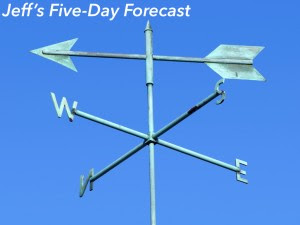“Eventually, all things merge into one, and a river runs through it. The river was cut by the world’s great flood and runs over rocks from the basement of time. On some of the rocks are timeless raindrops. Under the rocks are the words, and some of the words are theirs.
I am haunted by water.”
-Normal Maclean, A River Runs Through It and Other Stories-
I, too, find that I am haunted by water.
Recently, while walking along Deep Creek just inside our national park, I found myself ruminating on the power of the flowing water and the ancient corridor that it has carved through the mountains. I was particularly drawn to the river rock that paves the riverbed.
I found myself wanting to identify with the smooth stones. I’d like to have their wisdom.
Like the rocks in the swift currents of the rivers that are found in our backyards and nearby meadows, we too have been shaped by the torrent and the flood. Life teaches us that this process of erosion shapes us by the flow of life’s events and the many particles that nick us and smooth us.
Upon closer examination of these rocks you’ll notice that the stones on the river bottom are not jagged and rough, but are pebble-like because of the eons of polish they’ve received.
I cannot imagine that these ancient, smooth stones can recall the particularities of each sand molecule, or the density of the flowing sediment, or the volume of the grit, and the flow of the water that have worked to shape them over a myriad of millennia. These stones cannot recall each hardship in the crucible of being shaped. But they are undoubtably shaped by them.
Likewise, when we recall the lives that we have lived – and the bruises, scratches, and pains that we have endured—the wise among us choose the limitations of our memories and do not linger long upon each chip and scratch. The savviest among us do not recall the moments of each tumble and friction.
The end result remains the same. We are shaped by the water that constantly washes over us.
The gift of a life well-lived is that there is too much to remember and to recall. Who among us can remember today the pinches, distractions, worries, and anxieties of this day 5 years prior…or 10 years, let alone 20 years, or 50? These small, but admittedly important, moments tend to get washed away. But they do leave a mark. They do “polish” us.
We belong to an ancient people of faith who are commanded to remember. May we have the wisdom to know that which we should remember and cling to, and that which we should allow to flow away from us with the current.
Join us by the river immediately following our Church Picnic at the Deep Creek Pavilion for a brief worship service by the water this Sunday, June 2. We’ll be gathering at the pavilion around 4:00 PM and will eat within the hour.












